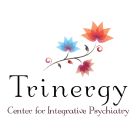Autism – A Holistic Approach
Autism is a neuro-psychiatric disorder affecting children that is typically chronic and lifelong. Currently, DSM-V (Diagnostic manual for psychiatric disorders) has grouped all autism subtypes into one unified diagnosis – ASD (Autism Spectrum Disorder). ASD is further divided based on severity into 3 subtypes – Level 1 to 3, with Level 3 being the most severe and requiring the most care and support.
Typical (core) symptoms of ASD are:
- A. Persistent deficits in social communication and social interaction across multiple contexts.
- B. Restricted, repetitive patterns of behavior, interests, or activities.
Symptoms must be present in the early developmental period although may not manifest until abilities are overwhelmed by social (and other) demands. Intellectual (cognitive) disability is usually common to co-occur but social deficits must exceed global cognitive impairment to qualify for ASD diagnosis.
Autism and Genetics
Most of the initial understanding about autism was centered around the genetics of it. ASD is heritable and tends to cluster in families. There are specific genetic syndromes that are associated with ASD (fragile X, Angelman, Prader-Willi, etc). But these single gene or chromosome defects account for only a minority of ASD cases. Hence, research has focused recently on environmental factors that could be causing ASD. There is a ton of evidence to hold our increasingly polluted environment responsible. For starters, rates of ASD are steadily rising. ASD prevalence rate was 1 in 5000 in 1975, 1 in 150 in 2000, 1 in 68 in 2012, and the most recent census of 2014 indicated a rate of 1 in 59 children. As genes do not change so quickly, it is more plausible that the environment is causing epigenetic changes that are resulting in ASD and possibly many other health conditions.
The Perinatal Period
The perinatal period seems to be a high-risk period for ASD. Many drugs, including but not limited to Tylenol, opiates (short term exposure in women just prior to becoming pregnant), valproate, thalidomide, and antidepressants (SSRI & Non-SSRI meds) have been associated with an increased risk for autism. It makes one wonder about the effect of drug and alcohol addiction (including opiates) during pregnancy and perinatal period, the effect of neonatal withdrawal on the developing brain, etc. Although most such studies have looked at medications and drugs used by women before, during, and after pregnancy; some studies have looked at such use in dads with one study finding an association between antidepressant use in dads and risk of ASD.
Overall, current hypothesis is that many factors (chronic stress, poor diet, etc.) can result in maternal inflammation and maternal immune activation (MIA). This, coupled with oxidative stress (increase in oxygen free radicals and reduced anti-oxidants) in mom, affects the developing fetus or the new born. In such a susceptible fetus (or newborn), an exposure to a toxic environmental agent can prove to be the last straw in causing ASD.
The studies mentioned above have implicated only a small group of medicines and addictive agents. But there are many OTC medicines that are consumed by men and women in the reproductive age, many during pregnancies. We have not fully elucidated their effects on developing fetus/new borns specifically looking at risk for ASD or other neuro-psychiatric syndromes.
Autism and Chemicals
We are also exposed to an insane amount of chemicals (at least 100,000 new chemicals since World War II) that have not been tested for safety in humans. Moreover, the dangers of combination of chemicals or their synergistic effect in causing harm to us has not been studied at all. Many of these chemicals (VOC’s, Pthalates, Parabens, SLE, Glyphosate, etc) are ubiquitous and we are exposed to them from dawn to dusk (toothpaste, soaps, fragrances, processed food, GMO food, etc). Studies show that these chemicals trigger inflammation (by causing leaky gut and allowing undigested food to enter the blood stream; by binding to one’s own serum proteins making them antigenic and triggering autoimmunity) or can cause hormone disruption due to their estrogen mimicry (phthalates, BPA, etc). Due to these effects of the chemicals, many studies have linked exposure to environmental toxicants with a wide variety of diseases (from allergies to cancer to autoimmune diseases). My hypothesis is that such immune activation (or hormone disruption) in the pregnant mom can lead to neuroinflammation in the fetus’ developing brain and thus result in ASD.
Ancient Mayan Shaman saying: “If you make an enemy of the earth, you make an enemy of your own body.”
Given the increasing rate of prevalence of ASD, it is highly imperative that even as we are focused on treatment research; we need to actively search for causes of ASD so that preventive and corrective policies and actions can be put in place. Prevention of ASD is of paramount importance. As otherwise this condition alone can cause a huge economic burden on our economy. To give an example, total cost of care per year for children with ASD is $11.5 billion – $60.9 billion, according to 2011 census. This number is projected to only go up as more and more children/adults are being diagnosed with ASD and in need of treatment and other services.
Autism Treatment – A Holistic Approach
In terms of treatment, currently there is no treatment for the core symptoms of ASD. In children with ASD, early intervention with modalities like ABA (Applied Behavior Analysis) is crucial for improving functioning and minimizing the core symptoms of ASD. Treatment with psychiatric medicines for associated symptoms (depression, psychosis, aggression, anxiety, etc) is the mainstay of intervention in ASD. However, recent reviews have shown that psychiatric drugs have poor efficacy in treating the associated symptoms and are risky to use due to their many side effects (neurological side effects, metabolic syndrome, DM type 2; being the most burdensome of them all).
As psychiatric diagnoses are atheoretical and symptomatic diagnoses, we do not have an understanding of treatment of the underlying causes.
Hence, I have turned to Ayurveda, Integrative psychiatry and functional medicine, in my practice to understand and provide treatment for such a complex condition as ASD. When we view ASD through the wholistic lens, we begin to see that the brain is not the only organ affected in ASD. One needs to watch just a few episodes of ‘The Big Bang Theory’ or ‘Young Sheldon’ to know of gut issues, etc. in this population. Or, you may also read all the articles mentioned in the reference section below ?.
What we know is that children and adults with ASD have a higher incidence of immune disorders (autoimmunity, hyperglobulinemia, increased tendency for allergies and easy immune activation), gut disorders (constipation, diarrhea, poor digestive function, microbiome disruption, picky eating, etc.), metabolic problems (impaired metabolism of folate, cobalamin, mitochondrial, neurotransmitter metabolism, etc.) and genetic polymorphisms that in turn create individual biochemical needs (e.g.: MTHFR gene polymorphism and other genetic polymorphisms – stay tuned for more info on this in a later article).
So, the Ayurvedic (or Functional Medicine) approach would be to map out all the physiological systems that are involved and put in place strategies to help these systems function optimally. This way, there is the hope to even treat the “core” symptoms of ASD. Ayurvedic approach also helps us understand individuals based on their innate bio-energy constitution and imbalances (Dosha theory – Vata/Pitta/Kapha – imbalances). Through diet and extensive herbal pharmacology, we can create healing from the level of these bio-energies or Doshas that in turn create healing in the physiological systems mentioned above. This is an inward – outward approach of healing and health.
For instance, let’s start with healing the gut (because Ayurveda and FM state that all disease begins in the gut through impaired digestion and poor diet, and so healing needs to start in the gut). We address and repair the “leaky gut” through diet and specific supplements. Enhance digestion through Ayurvedic herbal medicines. Support the Immune system and reduce inflammation, also through Ayurvedic herbs. It’s interesting to note that in Ayurveda the herbs and medicines are not seen as either increasing or decreasing any particular activity in the system. Rather, they are seen as enhancing ‘balance’ in the system – thereby allowing our body’s innate healing and homeostatic mechanisms to take over.
Does this work? So far, I have seen moderate success with my adult patients with autism, in terms of improved quality of life for patients and their care givers, reduced associated symptoms (aggression, depression, psychosis, insomnia, mood instability) and reduced reliance on psychiatric medicines (antipsychotics, antidepressants, stimulants, etc.). In one patient, successful transition back to home from a supported housing situation and enhanced everyday functioning is also noted. In another patient, improvement in cognitive function was noted in the form of improved focus, concentration and reading abilities; despite coming off of the stimulants.
Just recently, I started to work with a young 4-year-old child with recent history of autism, but with Level 3 severity. I got this opportunity about 3.5 weeks ago now. I was very hopeful for this child as the duration of illness seemed to be about 2.5 years long. We started this child on the same broad principles of intervention. In 1 week, I received this excited email from his mom, who was pretty sad and hopeless just a week before:
“I am finding it extremely hard to get all the supplements in. I am working very hard to make sure he gets them but the amount is a lot!! I will have to say though.. they are working!!! He has eaten baked chicken and rice which he hasn’t eaten for over a year now. He has a lot more eye contact, listens to you when you talk or understands when you ask him to do something. The whole family couldn’t believe this change! We are very happy with this and we are all working hard to make this change lifelong. Thank you for your help!! I am so excited for this new beginning.”
Watch this client testimonial video, to learn how my integrative psychiatry approach has helped one of my clients, Katie, with her PDD (Pervasive Developmental Disorder), which is part of the autism spectrum.
In conclusion, there is more to mental health (illness) than what we have been led to believe. Mental illness is not a result of the simplistic theory of chemical imbalances in the brain. We have to evaluate the brain in connection with all the other physiological systems in the body to be able to create the potential for healing and recovery.
As physicist, Fritjof Capra said, “The great shock of the 20th century science is that systems can’t be understood by analysis. The properties of the parts can only be understood by the whole.”
More patient videos and testimonials are available at www.trinergyhealth.com.
Thank you,
Aruna Tummala, MD, ABIHM
Dr. Tummala is open for new patients. She is passionate about using her holistic training and experience in helping children and adults with autism experience their best expression of health. Call (262) 955-6601 or contact us to make an appointment.
References:
https://www.cdc.gov/ncbddd/autism/facts.html
https://www.cdc.gov/ncbddd/autism/features/keyfindings-risk-factors.html https://www.cdc.gov/ncbddd/autism/features/artandasd.html
Frye and Rossignol. Identification and Treatment of Pathophysiological Comorbidities of Autism Spectrum Disorder to Achieve Optimal Outcomes. Clinical Medicine Insights: Pediatrics 2016:10 43–56 doi: 10.4137/CMPed.S38337.
https://www.cdc.gov/ncbddd/autism/features/kf-opioids-pregnancy-autism.html
https://www.bmj.com/content/346/bmj.f2059
https://www.bmj.com/content/358/bmj.j2811
https://www.bmj.com/content/358/bmj.j3950
https://www.bmj.com/content/358/bmj.j3668

